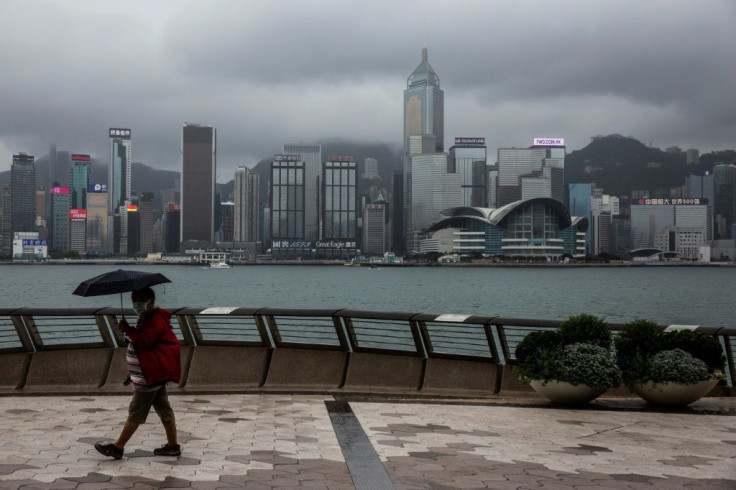Hong Kong Activists Plan New Protests Over Proposed Security Law
Hong Kong's pro-democracy campaigners called for fresh protests on Sunday, their first test after China sparked outrage with a proposed new security law that many fear will spell the end of the city's treasured freedoms.
The proposed legislation is expected to ban treason, subversion and sedition, and follows repeated warnings from Beijing that it will no longer tolerate dissent in Hong Kong, which was shaken by months of massive, sometimes violent anti-government protests last year.
Through messaging apps and social media, activists asked pro-democracy supporters to gather Sunday afternoon in one of Hong Kong's busiest shopping districts, seeking to revive their movement which previously fizzled as arrests mounted and, later, as large gatherings were banned to stop the coronavirus.
"We are back! See you on the streets on May 24!" read what appeared to be fresh graffiti near a subway station in the Kowloon Tong district on Saturday, as concerns mounted of more unrest and instability in Hong Kong.
More than 8,300 people have been arrested since the protests erupted last year. Around 200 were detained during small rallies at malls on Mother's Day earlier this month.
The planned Sunday protests do not have official permission, and Hong Kong's police force warned it would take action against any unauthorised assembly, and also cited current coronavirus-linked rules against public gatherings larger than eight people.
"The police will deploy adequate manpower in relevant locations tomorrow and take resolute law enforcement action and make arrests as appropriate," it said in a statement on Saturday.
With the fear of more arrests and the virus-linked ban on gatherings, it was unclear how many would participate or if the protests would be held at multiple locations.
Hong Kong residents enjoy rights -- including freedom of speech -- unseen on the mainland as part of the agreement that saw the British colony handed back to China in 1997, and the city has its own legal system and trade status.
Fears had been growing for years that Beijing was chipping away at those freedoms and tightening its control on the city, and campaigners have described the new proposal as the most brazen move yet.
Of particular concern is a provision allowing Chinese security agents to operate in Hong Kong, and that they could launch a crackdown against those dissenting against the mainland's Communist rulers.

A top pro-Beijing official, however, claimed on Saturday that mainland law enforcement would not operate in Hong Kong without "approval" from local authorities.
"I'm not worried about anybody being arrested by a police officer from the mainland and then taken back to China for investigation or punishment," Maria Tam, a Hong Kong law advisor to the Chinese parliament, told AFP.
"It is not, not, not going to happen."
Hong Kong's unpopular pro-Beijing leader Carrie Lam has defended the new proposal, saying it was necessary to protect national security and punish "violent political elements".
But there is deep mistrust of China's opaque legal system in Hong Kong and of how Beijing might use such regulations in the city -- the massive protests last year were sparked by a now-scrapped bill that would have allowed extraditions to the mainland.
The new proposal could prove even more wide-ranging than that plan, and several Western governments have voiced alarm.
US Secretary of State Mike Pompeo urged China to reconsider the "disastrous proposal", saying it would "be a death knell for the high degree of autonomy Beijing promised for Hong Kong".
China's legislature is expected to rubber-stamp the draft resolution on Thursday, the last day of the annual parliamentary gathering, before the details are fleshed out at another meeting at a later date.
Officials have said the law would then be implemented locally.
© Copyright AFP 2024. All rights reserved.











